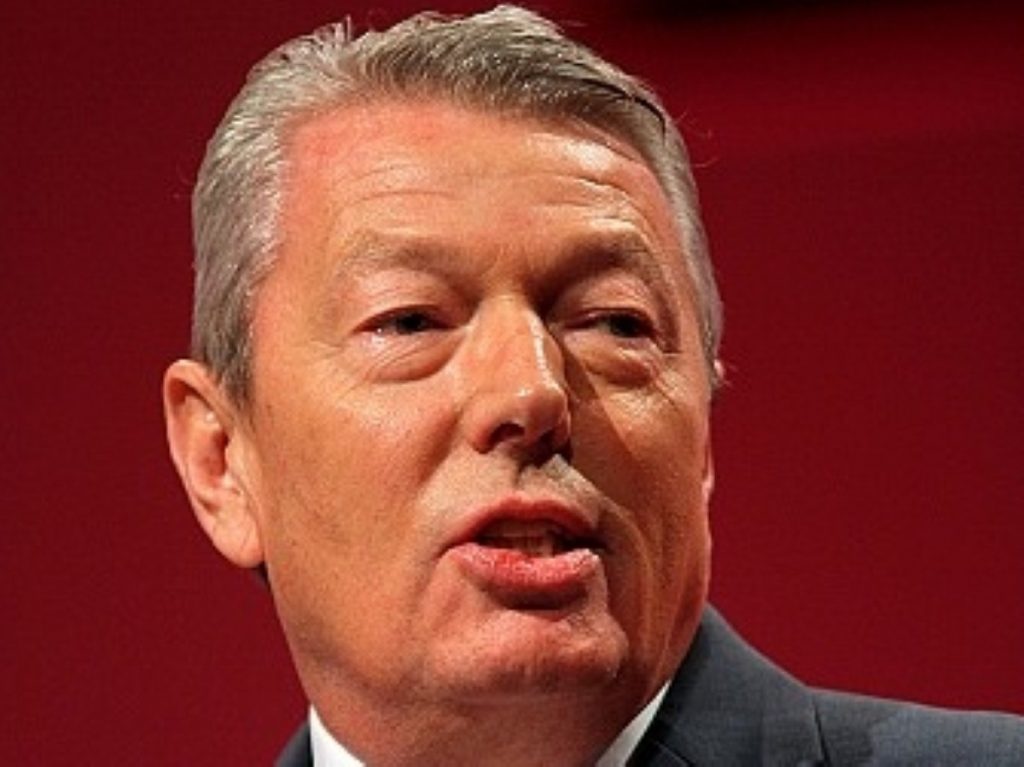Johnson comes out fighting
Alan Johnson has delivered a blistering first interview as chancellor, saying the coalition cuts would “fundamentally alter our community”.
Mr Johnson, who admitted when he was given the post that he needed to brush up on his economics, said he would not oppose all government cuts, but that the scale of what was being undertaken now was unprecedented.
“We don’t have to look far to see what the effect can be of cutting too deep too soon,” he told the Observer, in reference to Ireland.


“Even if double dip doesn’t happen, the way this coalition is implementing these changes will fundamentally alter our community and lead to a situation where we spend years trying to repair the damage.
“If you think of Thatcher in the 80s, the most she cut was 10%, and we are still feeling the effect of that in Hull, the city I represent.”
Mr Johnson is sticking to the spending plans followed by Alistair Darling when he was chancellor – to cut the deficit in half in the next parliament.
The government criticised the plan for lacking detail of what was specifically going to be cut, but Labour believes the plan offers a moderate ‘third way’ between the government’s plans and Ed Ball’s more radical approach.
Mr Johnson said he was realistic about the need to reduce the deficit.
“I am a realist about this. If you are cranking up lots of interest on debt you need to bring the deficit down as fast as you can, consistent with jobs and growth and I think that is where the Conservatives have fallen down,” he said.
He refused to rule out slowing down the rate of repayment if economic conditions worsened however.
Speaking on the BBC Politics Show today, party leader Ed Miliband said more money should be taken from the banks so that ruglar households would not be so affected by debt repayment.
“If we can get more, for example, from the banks, in a higher bank levy, to protect ordinary families – like on child benefit, like on public services – we should do so,” he said.
“Because frankly it wasn’t middle class families in this country that caused the crisis. It was the banking community.
“So if there is more that can be taken from them to protect families in this country we should do it.”
He insisted he would not propose a raise in personal taxation, however.
Mr Johnson made a similar pont, insisting more money could be wrung from the banks.
“We should look at all of that,” he said.
“It is totally reasonable to look at that without in any way failing to realise the importance of financial services to our economy.”
The public “believe that these huge disparities in wealth are wrong. We are at a time and in an era where people are questioning that much more than they would have done before and I think that is right.”
On his lack of economic experience, he said: “You don’t need to be a professor of economics to be a Treasury minister. I will do this job the way I have done other jobs. I would not pretend to be the greatest gift to the cabinet but I have done five cabinet jobs and I have done them OK.
“It is about getting up to speed very quickly and it is about listening to people. Particularly in this brief it is more about listening to people than reading up. I am not going to do an economics degree in the next few months.”
Mr Johnson insisted that the decision to give him despite his campaign statement that David Miliband was “head and shoulders” above any other candidate, proved Ed Miliband was intent on changing his party.
“This was a hugely generous offer,” he said.
“Ed didn’t have to make this offer to me, given the fact I was a prominent supporter of his brother during the election campaign.
“The jobs he has offered in the shadow cabinet show he wants to unite the party. So when he made the offer to me, how could you refuse that? It is a big, big job. It was so obviously a mark of the man and his determination to unite the party.”
Mr Balls made no secret of his desire for the shadow chancellor job, especially after an eloquent speech on the economy became the highlight of his leadership bid.
Pundits had expected Yvette Cooper, his wife, to take the position, if he opted not to give it to Mr Balls. In the end she was given the shadow foreign secretary brief while Mr Balls was made shadow home secretary.
Speaking on the BBC this morning, Mr Miliband praised Mr Johnson for his communication skills and said he had “huge experience” in government.












